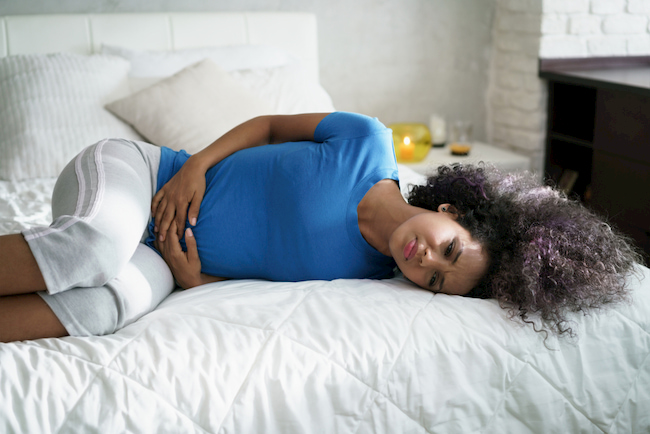From the time your daughter first gets her period, some level of discomfort that time of month is common. But could your teen’s excruciating pain actually be the result of endometriosis?
You might think of the condition as something that only impacts adult women. But that’s not true. In fact, while it’s most common among women in their 20s and 30s, endometriosis can affect any girl or woman of childbearing age. In other words, any person undergoing a monthly menstrual cycle.
If you haven’t experienced endometriosis yourself, you may not be familiar with the condition or how it affects overall health. If you suspect your daughter may have the condition or if she’s been diagnosed, you’ll want to brush up on the facts.
Let’s take a deep dive into the condition and how endometriosis may affect your teen.
Putting a definition with endometriosis
Each month during the menstrual cycle, tissue called the endometrium builds up along the wall of the uterus and is then discarded during a woman’s period.
This tissue has a purpose within the uterus — building up to prepare the body for pregnancy. When a woman doesn’t get pregnant during a given month, hormone levels fall and menstruation begins.
But sometimes, the tissue that normally is found only within the uterus begins to grow in other places within the body, including the ovaries, fallopian tubes, and tissues and outer surfaces of the uterus. Occasionally, the endometrium may also grow in places such as the vagina, cervix, vulva and even bowel or bladder.
While this tissue is found outside the uterus, it behaves the same way as tissue inside the uterus, thickening, breaking down and bleeding during the menstrual cycle. But that’s where a problem emerges, because there’s no way for this tissue to exit the body from those locations.
This often leads to severe pain and discomfort, along with other symptoms.
Recognizing endometriosis
Many girls and women experience cramping during the menstrual cycle, so at first, endometriosis-related pain may not seem abnormal.
But if your daughter is regularly experiencing extreme cramping and pelvic pain, endometriosis may be to blame. Pelvic pain impacts up to 75 percent of girls and women who have endometriosis.
Other symptoms include:
- Painful periods, including pelvic pain and cramping
- Lower back and abdominal pain
- Painful bowel movements or urination
- Excessive bleeding or bleeding between periods
- Fatigue
Digestive problems, including diarrhea, constipation, nausea and bloating, may also occur, particularly during a girl’s period.
Who’s at risk of endometriosis
While any female of childbearing age can experience endometriosis, it’s more common among certain people, including those who:
- Have a close female relative with the condition
- Started their period before age 11
- Experience short menstrual cycles, defined as those less than 27 days
- Experience heavy and long periods, defined as more than seven days
On the flip side, you’re less likely to develop endometriosis if you start your period later in adolescence, regularly exercise or participate in sports, and/or have a low amount of body fat.
What to do if you suspect endometriosis
If your daughter is having any of the symptoms outlined above, particularly if symptoms are worsening as time goes along, talk with a physician. He or she can review the symptoms and conduct a physical exam to make a preliminary determination of whether endometriosis might be a factor.
In some cases, a laparoscopic procedure is used to make a definitive diagnosis — using a camera to view the pelvis and look for patches of endometriosis.
If the doctor diagnoses your daughter with endometriosis, there are multiple methods of treating the condition, depending on its severity. This may include prescription or over-the-counter pain medications, hormonal therapy including oral contraceptives, and surgical treatment for severe pain.
Will endometriosis impact her fertility?
This is a common question for many moms and teens alike. While pregnancy may be years in the future, it’s natural to wonder whether conception may be more difficult with endometriosis.
And the short answer is — possibly. It can be more difficult for women who have endometriosis to get pregnant.
But there’s no reason to worry now. If your daughter gets older and is ready to conceive but having a difficult time, a doctor can recommend potential treatment options, including surgery, that may improve fertility.
Dr. Linda Yu specializes on OB-GYN at Erlanger Center for Women. Dr. Yu is interested in developing a close relationship with her patients and enjoys helping young girls with their self-esteem and future family planning.
Is it time for your daughter’s first visit to an OB/GYN? It’s important to find a doctor with whom your daughter feels comfortable. Find one here.







